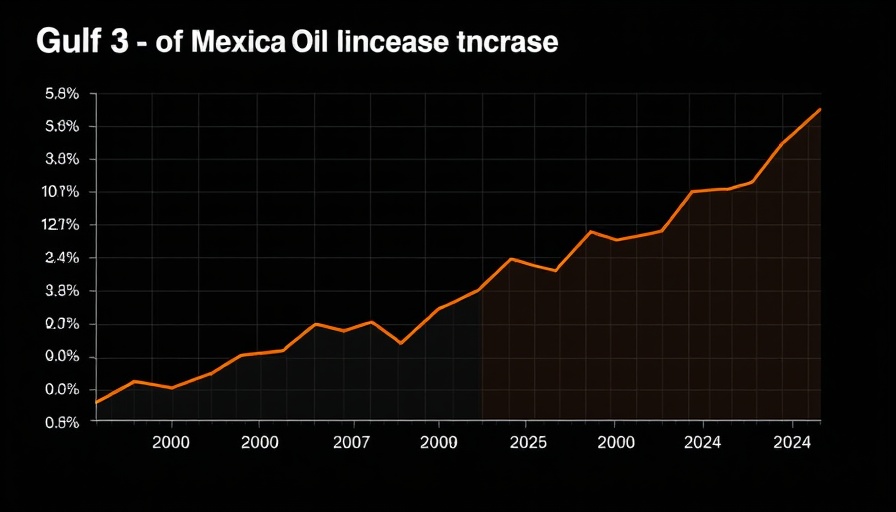
Trump’s Energy Dominance: A Look at Gulf Oil Output
In recent months, the United States has seen a significant revival in Gulf oil output, which plays a pivotal role in President Trump's ongoing push for energy dominance. This surge not only bolsters the economy but also aligns with Trump's broader agenda to prioritize American energy independence amidst a backdrop of global market fluctuations.
The Economic Impact of Gulf Oil Production
The resurgence in oil production from states like Texas and Louisiana has significantly contributed to job creation and economic stability in those areas. For instance, the share of oil produced in the Gulf of Mexico has increased, leading to heightened local investments. As a direct result, communities that rely on the energy sector are experiencing a renaissance, showcasing how much dependence the local economies have on oil output.
Energy Independence: A National Priority
Trump's strategy underscores a decisive shift towards energy independence, reducing reliance on foreign oil. By expanding energy production capabilities in the Gulf, the U.S. not only fortifies its position on the global stage but also mitigates risks associated with international supply disruptions, such as those caused by geopolitical tensions or natural disasters.
Environmental Considerations and Counterarguments
While the economic benefits of increased Gulf oil output are apparent, environmental concerns linger. The energy sector must navigate challenges related to climate change and the ecological impacts of drilling and extraction. Some critics argue that prioritizing oil production may hinder progress towards renewable energy sources, which are essential for sustainable growth. Thus, balancing economic ambitions with environmental stewardship remains a crucial debate.
The Future Landscape of U.S. Energy Policy
Looking ahead, the landscape of U.S. energy policy will likely continue to evolve. Experts suggest that as electric vehicles gain popularity and oil consumption patterns change due to market demands and environmental policies, the energy sector might have to pivot once again. Trump's current policies could serve as a significant chapter shaping this transition.
Conclusion: What It Means for the Average Citizen
For the average American, the implications of Trump's energy dominance push are twofold. On one hand, there are potential job opportunities and economic growth in energy-rich states. On the other hand, concerns about environmental sustainability might resonate more intensely as awareness of climate issues deepens. Understanding these dynamics is essential for citizens as they navigate the complexities of energy policy and its wide-reaching effects.
 Add Row
Add Row  Add
Add 




 Add Row
Add Row  Add
Add 

Write A Comment